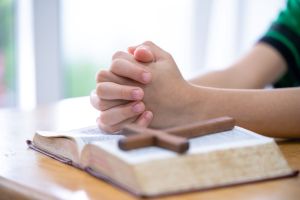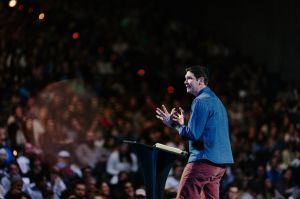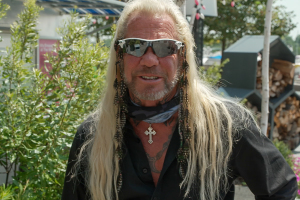'Cold-Case Christianity:' The Gospel Through a Homicide Detective's Lens
A Christian author, church planter and homicide detective has examined many of the big claims made in the Gospel and used the available evidence to examine whether or not they are true – offering that the case for Christianity holds strong.
"Jim Wallace was an angry atheist for many years. Today, he is one of the most thoughtful and winsome apologists for the Gospel I know. Cold Case Christianity is packed with insights to share with skeptics and will give you the confidence to share them," Pastor Rick Warren of Saddleback Church in California writes about Cold-Case Christianity.
The author, J. Warner Wallace, answered a number of questions by The Christian Post in an email interview about his book, which was released in January 2013 by David C Cook. While an atheist for 35 years, Wallace dismissed many of the big claims made in the Bible, including the resurrection of Jesus Christ.
When the author came to realize that the Gospel can be looked at much like the cold cases he solved as a homicide detective, he applied his skill to the assertions of the New Testament. In a preview of Cold-Case Christianity, Wallace says that he came to the "startling realization" that Christianity is as a convincing case as any of the ones he worked on as a detective.
CP: What are the advantages to studying the Bible and Christianity from a cold-case investigation standpoint?
Wallace: Cold-case homicides are events (murders) from the distant past for which there are often no living eyewitnesses and little, if any, direct or forensic evidence to make the case. Detectives learn how to evaluate and employ circumstantial evidence to demonstrate what happened at the scene of the crime. In a similar way, Christianity makes a claim about an event in the distant past for which there are no living eyewitnesses and little, if any, direct or forensic evidence. Cold-case detectives develop a set of skills that can be directly applied to the examination of the life, death and resurrection of Jesus.
CP: What are the biggest misconceptions non-Christians have about Christianity?
Wallace: I was a non-Christian until the age of thirty-five. I was often frustrated by the few Christians I knew on the police department because they weren't able to respond evidentially to my skeptical (and often sarcastic) objections. I thought, "How can these folks who seem to have such high regard for evidence in their professional life, believe something about God for which they have no evidence at all?" I was similar to other atheists I knew at the time. I didn't think there was any good evidence to support the claims of Christianity. The more I learned about the nature of evidence generally, and the more I learned about the evidence for Christianity specifically, the more convinced I became that the claims of the Gospels were true.
CP: With so much historical evidence behind Jesus Christ, why do so many continue to believe the entire story is fiction?
Wallace: Much of my skepticism as an atheist was rooted in the fact I had a presuppositional bias that prevented me from following the evidence where it led: I was a committed naturalist. I refused to accept the possibility that anything supernatural or miraculous could occur or exist. I was being unfair with the investigation from the onset. In essence, I was trying to answer the question, "Does God (a supernatural Being) exist?" by starting with the premise that nothing supernatural exists. It was an exercise in circular reasoning. I rejected any reasonable inference that pointed to God's supernatural existence because I rejected the supernaturalism foundationally.
I often say that people "shun" the truth for one of three reasons. They either have ra"shun"al (rational), emo"shun"al (emotional) or voli"shun"al (volitional) objections. In my case, it was the latter. I was very content being the only god Jim really needed; I refused to bend my knee to anyone other than me. As I examined the evidence, I eventually had to ask myself, "Am I resisting this because I think there isn't enough evidence to demonstrate this is true, or am I resisting this because I don't want there to be enough evidence to demonstrate this is true?" I eventually had to admit that I was resisting for volitional reasons. Today, I recognize that God used the evidence as the means to reach me. I was a skeptical evidentialist and God certainly knew that. But God first removed my hostility toward Him so I would be able to evaluate the evidence fairly. When I engage my non-believing friends these days, I am quick to remind myself that it's my job to address the rational objections people have related to evidence; God alone, however, can address the kind of volitional objections that many of us hold. I've learned to articulate the evidence while seeking God's power in prayer.
CP: In Chapter 10 you write that not all religions can be true, citing notable differences. Can the same be said about the denominations within Christianity? Is only one Christian denomination true?
Wallace: Jurors decide the truth in homicide trials, even though they may disagree on non-essential details. Every case has unanswered questions; jurors must come to agreement on the core issues related to the evidence, in spite of the fact they'll never be able to answer all the questions they may have. In a similar way, every worldview is grounded in a set of minimal, essential beliefs. Christianity is no different. As an atheist, I didn't agree with all my atheist friends; we often divided on a variety of details related to unanswered scientific questions, even though we all agreed on the non-existence of God. The question Christians have to ask each other is simply this: "What are the minimal essentials we must affirm to call ourselves Christians, and can we agree to disagree on the non-essentials (the unanswered questions)?" The trick, historically, has been trying to determine what is essential and what is not. The classic creeds of the Church have been an expression of this effort. To the extent that denominations affirm the clear essentials described in the Bible, we are united in our decision about truth, even though we may disagree on the non-essentials (the unanswered questions that are less clearly described in the Bible).
CP: In the same chapter, you note that celebrity atheists like Richard Dawkins and others have garnered a large following – and their ideas are especially popular among college-educated youths. Is there any practical way to reverse this trend and start pulling the younger population back to Christ?
Wallace: I'm passionate about preparing young Christians for the challenges they will face in college. The statistics related to the number of young people who walk away from Christianity in the university years is nothing less than horrific. We can do a better job preparing our students. The first thing we have to do is simple: stop TEACHING our kids, and start TRAINING them. There's a difference between teaching and training. Training is teaching in preparation for a battle. Imagine for a moment that you are enrolled in an algebra class. If the teacher assured you that you would never, ever be required to take a test, and that you would pass the class regardless of your level of understanding, how hard do you think you would study? How deeply do you think you would come to understand the material? How committed do you think you would be to the material?
The problem we have in the Church today is not that we lack good teachers. There are many excellent teachers in the Church. The problem is that few of these teachers are scheduling "battles". The clashes are waiting for our sons and daughters when they get to University (or enter the secular workplace). The Church needs to be in the business of scheduling encounters and training our young people for these challenges. Teaching without a planned encounter is little more than "blah, blah blah." This is the problem with traditional Sunday School programs. They are often well-intended, informative and powerfully delivered. But they are often impotent because our young people have no sense of urgency or necessity. There is no planned "battle" looming on the horizon and the difficulties of University life are simply too far away to be palpable. It's time to address the problem not with our classes but with our calendar. It's time to start scheduling difficult encounters so our teaching becomes training. Schedule a talk from a local atheist organization and have a speaker present the case for atheism to your group. Take your students to the local university and meet with the atheist student groups for a debate or symposium. Schedule an activity that creates a sense of urgency and requires your young people to master the concepts so they can defend what they believe. That's one of the reasons why I wrote Cold-Case Christianity in the first place. It's my hope that this book will help Christians (young and old) train for the future.
Cold-Case Christianity comes with a forward by Lee Strobel, author of The Case for Christ and The Case for Faith, and is available online and in bookstores. Wallace has also earned a master's degree in theology and is the founder of PleaseConvinceme.com where he provides arguments for Christian positions.




























